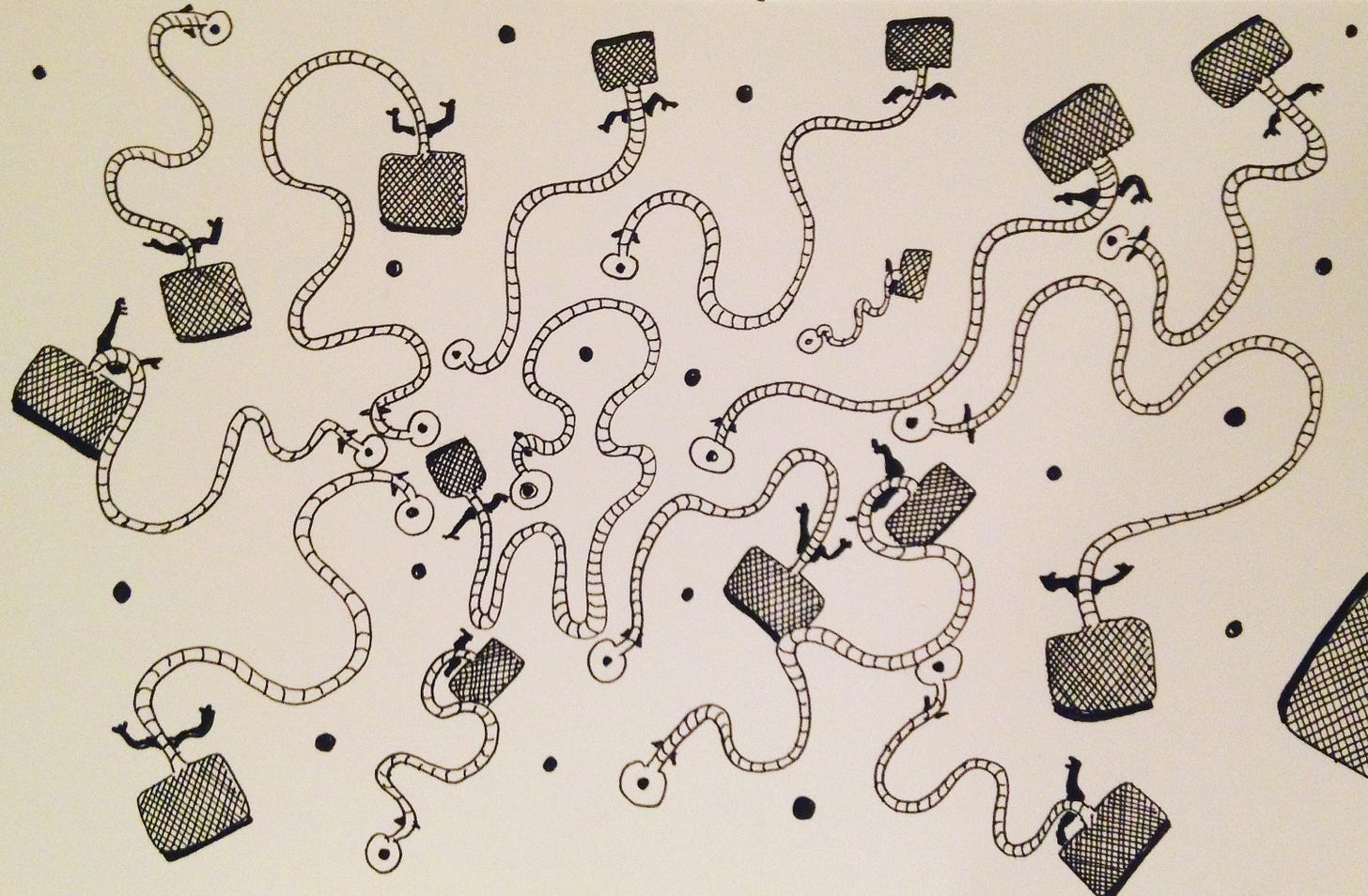TBM 10/53: Hammers & Nails
The tools we know bias us to solve problems (and see problems) in particular ways. Which makes sense. We’re eager to help, and excited to help when we know how to help. However we all suffer, on some level, from putting our craft at the center of the universe.
I hear this all the time from technical founders. “My bias is to build! That is what I am trained to do! I get a lot of satisfaction when something breaks, or a customer brings up a problem, and I jump in and fix it with code!” Or from designer founders. “I spent way too much time trying to pick apart the whole experience. That is what I’m wired to do!” Or marketers. “I jump straight to go-to-market strategy!” Researchers. “We need a two-month study here!” The pattern is similar.
In the same organization you might find a dozen “if only”s. If only we had more time to focus on [research, DesignOps, architecture, UX, implementing Kanban, strategy, interviewing customers, looking at analytics, quality, etc.] everything would be better! Where X is something you’re good at, and where you see the flaws and imperfections, and opportunities.
Sometimes we inadvertently diminish others. In advocating for more time for design, designers cast developers as robot design assemblers working in the Agile-factory salt mines. When trying to advocate for a team that works together, developers describe designers as wanting to do “ivory tower design”.
I’ve observed, over the years, very well-meaning people slip into condescending and belittling language in an effort to advocate for (and defend) their craft.
I mentioned this on Twitter recently, and someone explained that product managers should somehow reign everyone in. That everyone is biased, and the product manager can magically be without bias and “do what is best for the product”. The issue here is that product managers also succumb to the “if all you have is a hammer” problem. They are not immune from bias.
Someone else mentioned “healthy tension”. That you NEED people to be somewhat myopic about their craft area, and you need them to battle it out. “The right way will be in the middle!” Maybe? Would that imply that those involved are at an equal level? Is the middle always right? How do keep the healthy in healthy tension?
Just knowing we will tend to see our craft at the center of the universe is a start. Ask yourself, “can I build better awareness of how the other disciplines can contribute? How can I use my craft to learn from others, and make their work shine? How can I view our roles as more overlapping?”
As a simple next step, maybe brainstorm 10 things that your area of expertise might bias you to do/think/say. And then write down how you might challenge your own biases. I’m not suggesting your instincts are wrong, rather that we tend to skew in one direction.
I could use your help spreading the word about a great opportunity for startups. At the day job, Amplitude, we have a program for startups (<2 years old, <$5 million in funding, <20 employees) where they get a paid version of our product analytics product free for a year.
I love watching startup teams be more impact focused and pushing the product to the limit.




